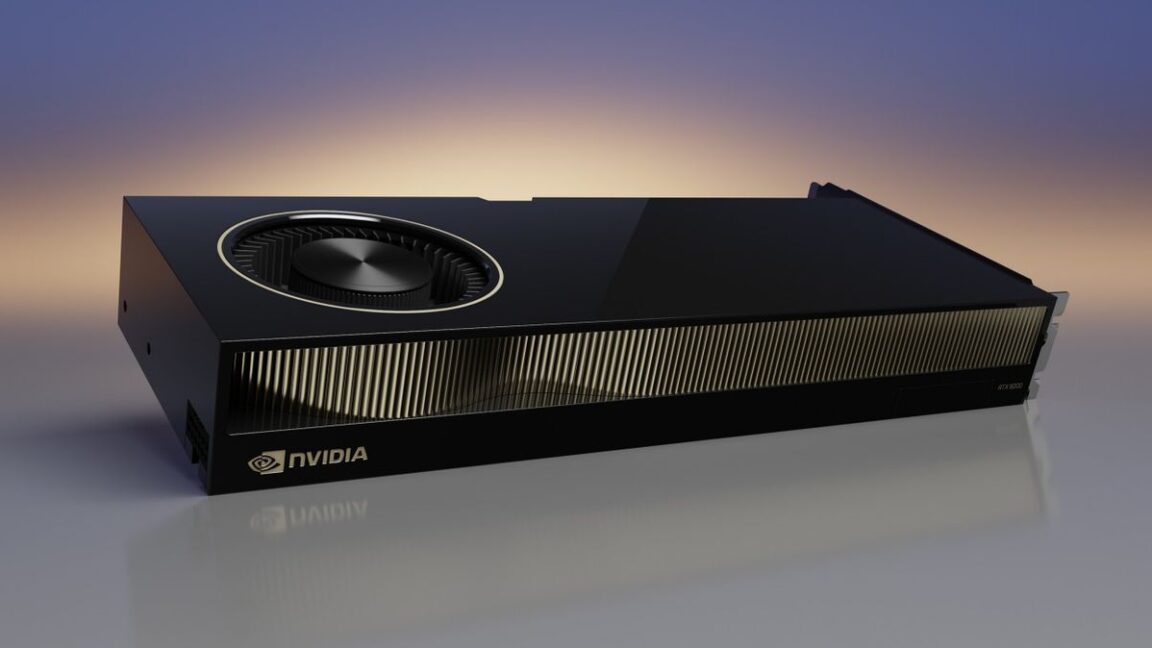Nvidia Resumes Sales of AI Chips to China
Introduction
In a major development for the technology industry, Nvidia has announced that it will resume sales of its highly sought-after AI computer chips to China. This decision comes after the company's CEO, Jensen Huang, revealed that they have received approval from the Trump administration to make the sales. This move has been long awaited by both Nvidia and China, as the country has been facing a shortage of advanced computer chips for its growing AI industry.
Key Details
The H20 computer chips, which are used for artificial intelligence and machine learning, are considered to be top-of-the-line technology in the industry. With China's focus on advancing its AI capabilities, the demand for these chips has been high. However, due to the ongoing trade war between the US and China, the sales of these chips were halted. This latest development not only benefits China, but also Nvidia, as it opens up a new market for their technology and strengthens their position as a leader in the industry.
Impact
This decision by the Trump administration could have a significant impact on the technology industry, as it sets a precedent for other companies to potentially resume sales to China. It also highlights the importance of international trade and cooperation in the rapidly growing field of AI. With China's continued investment in AI and the demand for advanced technology, this could be a lucrative opportunity for companies like Nvidia to expand their
About the People Mentioned
Jensen Huang
Jensen Huang is a Taiwanese-born American entrepreneur and electrical engineer best known as the co-founder, president, and CEO of NVIDIA Corporation, a leading technology company specializing in graphics processing units (GPUs) and accelerated computing. Born on February 17, 1963, in Tainan, Taiwan, Huang moved to the United States at age nine. He holds a Bachelor’s degree in Electrical Engineering from Oregon State University and a Master’s degree from Stanford University. Before founding NVIDIA in 1993 with Chris Malachowsky and Curtis Priem, he worked at LSI Logic and Advanced Micro Devices (AMD). Under Huang’s leadership, NVIDIA pioneered the development of the GPU in 1999, which revolutionized computer graphics and gaming. This innovation laid the foundation for NVIDIA’s expansion into diverse fields such as artificial intelligence (AI), autonomous vehicles, mobile computing, and scientific research. Huang foresaw the potential of GPUs beyond gaming, particularly for AI and machine learning workloads, which has positioned NVIDIA as a central player in the AI boom of the 2020s. NVIDIA’s GPUs power many of today’s major AI data centers and applications, including large language models like GPT. The company’s market capitalization briefly surpassed $4 trillion in 2024, making it the most valuable public company globally and cementing Huang’s reputation as a visionary CEO. His contributions to the semiconductor industry have earned him prestigious honors such as election to the National Academy of Engineering and the Semiconductor Industry Association’s Robert N. Noyce Award. He has also been recognized by Fortune, The Economist, and TIME magazine as one of the most influential CEOs worldwide. Huang remains deeply involved in NVIDIA’s strategic direction, product innovation, and corporate culture, maintaining a hands-on leadership style that has driven the company’s growth from a startup to a trillion-dollar technology giant.
About the Organizations Mentioned
Nvidia
Nvidia Corporation, founded in 1993 by Jensen Huang, Chris Malachowsky, and Curtis Priem and headquartered in Santa Clara, California, is a pioneering American technology company best known for inventing the graphics processing unit (GPU) in 1999[1][2][4]. Initially focused on GPUs for video gaming, Nvidia has expanded its scope to serve diverse markets, including artificial intelligence (AI), high-performance computing (HPC), professional visualization, automotive technology, and mobile devices[1][3]. Nvidia’s GPUs, such as the GeForce series for gamers and the RTX series for professional applications, are central to its dominance, controlling over 90% of the discrete GPU market as of early 2025[1][4]. The company’s investment in CUDA, a parallel computing platform and API launched in the early 2000s, revolutionized GPU computing by enabling GPUs to accelerate a wide range of compute-intensive tasks, particularly in AI and scientific research[1][4]. By 2025, Nvidia commanded over 80% of the GPU market for AI training and inference and supplied chips to more than 75% of the world’s top 500 supercomputers[1]. Nvidia’s influence extends beyond hardware. It offers a comprehensive ecosystem including software platforms like Omniverse for 3D simulation and digital twins, AI frameworks such as MONAI for medical imaging, and Jetson for robotics and edge AI[2][3]. Its technologies power autonomous vehicle data centers, AI factories, and cloud gaming services like GeForce Now[2][7]. Financially, Nvidia achieved record full-year revenue of $130.5 billion in fiscal 2025, with a workforce of over 36,000 employees worldwide and a robust patent portfolio exceeding 8,700 applications[2]. The company is recognized for innovation and workplace excellence, topping Forbes’ "America’s Best Companies 2025" and Fast Company’s "World’s Most Innovative Companies"













